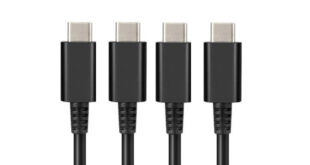Mobile. What a strange, slippery word. If we park the obviously mobile PSP and DS – let’s call them ‘handheld’ – then you’re not actually left with ‘mobile phones.’ From a commercial perspective right now, you’re left with the iPhone. That’s the bad news. The good news is the platform genuinely rewards innovation and staying true to your passions.
The fact that the Android app retail market is fragmented is normally cited as the biggest reason when someone posits that Android development is no way to pay the mortgage. Clearly that’s true – any impediment to purchase is pretty much fatal for digital content. But beyond this unfortunate fact, the Android in-app purchase scheme is borked, and people would far rather pirate an Android app than buy it. This isn’t Apple fanboyism, but economics.
PAPA’S PERSPECTIVE
From our perspective, though, there’s a more important reason why we’ve not ported games like Papa Sangre or The Nightjar to Android; it’s pretty much impossible (or specifically, the effort required is not economically viable). One forgets that iOS is the best part of 25 years old, tracing its lineage to 1988 and the NeXT OS.
Even Xcode is a direct descendant of Application Builder, the NeXT software development environment.
The media handling APIs are mature; the maths libraries are fast; the foundations are all ridiculously easy to use.
We just can’t get complicated applications functioning with any kind of speed (if at all), and it’s not because we’re stupid or don’t know the platform well enough.
Moore’s Law will take care of the problem, but by then we’ll be pushing the A6 in iPhone 5S to its limits.
So, together with Epic Games and id Software, we’re decided we can’t develop for Android in the foreseeable future. God knows, we’d love to.
So that’s the bad news – a platform that outsells iOS but which you can’t make any money out of. On the bright side, you can make money out of iOS. Even small studios, because of a certain levelling of terrain. But what terrain? And is it actually a fact? There’s a truism that goes something like: ‘small studios are on a level playing field with megacorps because all apps are equally visible in the App Store’.
That’s important. And it’s also true that while you could pile bazillions into a handheld game, you’re going to be able to make more out of investing bazillions into console gaming. So the bazillionaires invest much less in handheld gaming – far closer to what a small independent team would invest. This means it’s a much more ‘fair’ fight.
ENVIRONMENT FRIENDLY
What’s actually interesting is that more accessible environments – that is, where anyone can download an SDK for less than £90 – attract a wider gene pool. I’d argue a game will succeed or fail dependent on the match between the developer’s passion and skills, and the game they make, and that this is what’s important in smaller studios having a crack at a bit of giant-killing.
Larger studios making smaller budget iOS games are less likely to produce genre-fracturing games, or tonally different games in the way that advance the state-of-the-art.
Put it another way, assuming both teams are run well and good at writing code, a product at a given budget can beat a product with twice that budget – if the skills and ambitions of the development team match the product.
The difference is that, now, those skills and ambitions can belong to a far, far wider set of ambitions. This means you get PopCap, Mr Fung Fung, Hand Circus and, of course, Somethin’ Else. We’ve wanted to create an audio-only game like Papa Sangre for years, and had the skill in-house to do it because of our other audio-based work. We know the big studios have thought about it every other year – but thinking isn’t the same as doing.
The lower barrier to entry doesn’t totally level the playing field, of course; it doesn’t mean you immediately get a million-pound marketing budget, but it does mean that if your game is worth a million quid you could turn it into cash money eventually.
Accessible hand-held gaming platforms – which one-day should include Android we firmly hope – aren’t a platform for instant millionaires, but are still platforms for talented entrepreneurs. Long may that be the case.

 MCV/DEVELOP News, events, research and jobs from the games industry
MCV/DEVELOP News, events, research and jobs from the games industry



